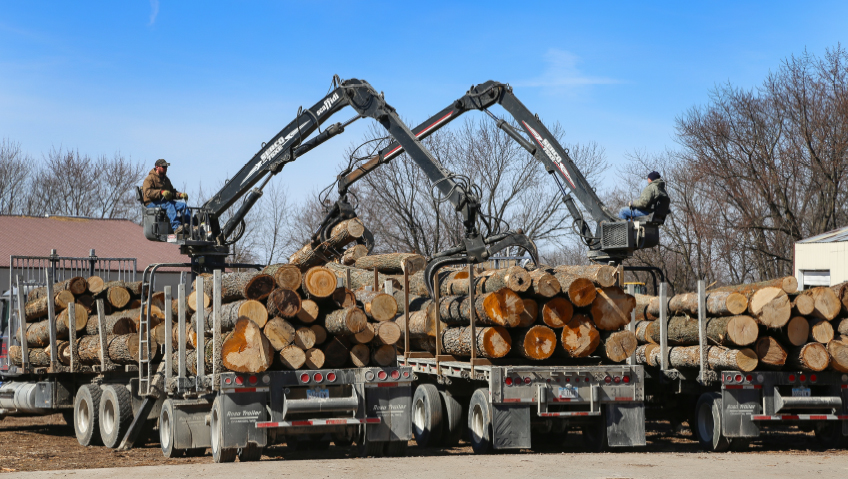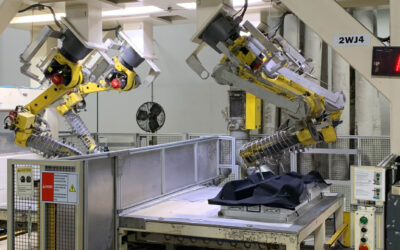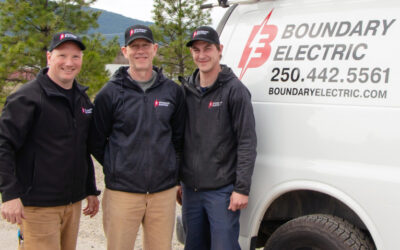Kendrick Forest Products (KFP) operates a hardwood sawmill and a breadth of ancillary businesses in Edgewood, Iowa. The rapidly-growing, family-owned company mixes business smarts with a focus on sustainability while offering a range of products and services. This winning formula has put the once-struggling company on an upward trajectory.
“From the beginning, sawing just 700,000 board feet per year with just sixteen employees, one location, and one company, to today, sawing 15,000,000 board feet per year with 160 employees, five locations and eight companies, you can certainly see the growth,” states Rhonda Kendrick, who owns the firm with husband Tim Kendrick.
The KFP sawmill—the largest in Iowa—offers walnut, red and white oak, hard and soft maple, red and grey elm, cherry, ash, basswood, and hickory, among other varieties of lumber, by products, and finished goods from signs and cabinets to industrial products such as railroad ties. Products are exported to over two dozen countries in Asia, Europe, and elsewhere.
Services, from logging to hauling, sawing, grading, debarking, steaming, and drying, are performed by KFP. The company harvests logs, hauls them to its yard, “then we send them into our mill, where they are sawed down—or unassembled—and boards are created, along with railroad ties and blocking or cants for pallets. Boards are sorted by quality, and wood waste is turned into mulch, then colored and bagged. Sawdust is used to generate electricity for our plant,” she says.
Kendrick Forest Products owns over 1,200 acres of land for tree harvesting and is the only forest products company in Iowa with its own lumber mill, logging, and trucking crews. While it purchases some trees from outside companies, all logs are from within a one-hundred-mile radius of its sawmill whenever possible.
“When you locally source the logs, you have a better chance of uniformity in the lumber. If we were buying logs from another region, their growing seasons are a little different than ours; their color is different; their soil is different. So, if we stick to our area, our customers are assured of getting similar quality. Although no two boards are the same, they’re going to be similar.”
The company’s roots extend to the 1950s when Don Kendrick, Senior (Tim’s father) launched a sawing and logging business in Edgewood. He ran his sawmill until the early 1970s, when he sold it. Unfortunately, the mill shut down within a few years of the sale, a devastating blow to the local community.
The shuttered mill was purchased by Tim and his brother in 1983. Tim’s brother soon exited the business but Rhonda entered, and much work ensued. With Don Kendrick, Senior guiding them, Tim, Rhonda, and their small staff reinvigorated the sawmill. Soon, it was ready to expand.
“The first expansion came in the form of dry kilns in 1987. More were added in 1991. In 2001, a cabinet company was purchased from a retiring customer. That year was also the start of a major $5 million expansion in the sawmill operation,” Rhonda recalls.
Additional equipment, such as line-bar resaws, headsaws, board edgers, and a de-barker machine, was also acquired as part of the expansion. New facilities were opened, including a space devoted to de-barking. The company installed biomass and steam turbine systems that burned sawdust to generate electricity for its operations.
“A lot of thought was given to the expansion. Some of our peers had turnkey operations put in at a higher cost. Our facility was designed at our kitchen table with paper and pencils using the expertise of our key staff. We went through a lot of pizza and beer working those plans up, but we believe our mill is one of the more efficient mills in the U.S. for our size,” she says.
The cabinetmaking company acquired in 2001 was moved to Edgewood. Forever Cabinets by Kendrick proved to be a hit. Today, cabinets are mostly sold to local consumers, although it has shipped its wares to multiple states.
“We are different than most manufacturers. Our designers work directly with the customer and our shop. When we build our cabinets, we bring in lumber from our mill, plywood from U.S. suppliers, hinges, drawer slides, paint, and varnish, then we manufacture and build cabinets,” says Rhonda.
Other new businesses have been launched over the past five years. A mulch coloring and bagging line was also added, as was Kendrick Home which prints designs on wooden signs to be sold on a wholesale basis to stores across the country, while custom photo division Shimlee allows customers to upload images or create custom sayings and designs which Shimlee then prints on wood. The company name is derived from shim board, the waste material produced during sawing. Kendrick also operates a retail wing, selling cabinets, home décor, and other company wares. In 2021, KFP expanded again by adding an additional sawmill and dry kilns, and updating its current dry lumber line with the addition of a new building and new equipment to better serve the growing needs of its customers.
The firm adheres to lean manufacturing and continuous improvement principles. KFP uses a Kanban system to simplify parts purchasing, among other tasks. In a Kanban system, work-in-progress is tracked on a board or computer to maintain a high-level of transparency and communication about workflows.
It also performs ‘clean sweeps’ in which staff go through areas looking for ways to improve operations and keeps the sawmill tidy and orderly. Continuous improvement initiatives have been implemented to enhance productivity and eliminate bottlenecks. When bottlenecks occur, they are closely analyzed with a view to resolving the issue and preventing such problems from recurring.
Sustainability is another key tenet. To this end, Kendrick Forest Products has a sustainability verification certificate from the National Hardwood Lumber Association (NHLA).
“I would like to think we’re the kind of people that keep the environment at the forefront of our minds, but I also have four kids, and they have kids. If we want to continue in this business, we’d better take care of our resources or there will be none for them to harvest. The general public may think this means protecting the trees by not harvesting them, but it means the opposite. When you sustainably harvest timber like we do, it improves the health of the surrounding trees and other life and ensures the regrowth for new ones,” Rhonda says.
Ownership remains family-based, with all four adult children of Rhonda and Tim—along with some of their spouses—working for the company
Worker safety is paramount, and this is an important consideration in a business built around tall trees and sharp blades. Kendrick loggers are fully insured and required to take Forest Industry Safety & Training Alliance (FISTA) instruction. Based in Wisconsin, FISTA is a non-profit group dedicated to safety training and education for the forestry sector. In addition to FISTA training, logging and sawing equipment is kept clean and well-maintained.
“I don’t think we do anything extraordinary, but our ‘experience mod’ speaks for itself. We have a negative experience mod on worker’s compensation insurance because we’ve been so safe,” she says, referring to the experience modification factor, a measure of company safety.
For all its success, the company is faced with challenges, one of the most recent being the advent of COVID-19 in March 2020.
“COVID had an impact on everyone’s lives in one way or another. We lost several friends, relatives, and colleagues. We try to take the negatives and somehow make it positive. Our store was closed for about six weeks, so we had to be creative and upped our game to create more online sales. Although our retail sales took a strong dip, the online sales continue today,” Rhonda states.
Accommodations were made to protect employees and mitigation efforts were implemented based on recommendations, employee safety, and risk factors in their area. Greater emphasis was put on cross-training, so if a worker was absent due to illness, their position could be covered until they returned.
Taking care of staff during the COVID crisis exemplified KFP’s community-minded spirit. This same community ethos was behind the decision to open the company to guided tours in 2010. Running from spring to fall and attracting roughly 1,200 visitors a year, these tours serve an important function beyond giving the public an inside look at Kendrick’s operations.
“It’s important to us that people understand how carefully our resource is used, how knowledgeable our staff must be, and how much we love our industry,” Rhonda says.
Rhonda and Tim also believe in being open and available to staff, which is one reason they chose to live near their business.
“We’re very close with our employees and being next door… I think that they feel a little bit more committed knowing that we’re so committed to them,” she says.
The current plan is to consolidate growth while maintaining a customer-centric approach.
“As for our future, with all the expansions we have done, I expect, over the next few years, we will focus on our lean manufacturing and make sure we do not fall out of step with our core principles and practices. We will continue to be customer-driven and look to manufacture products that will solve problems for customers. That could be in the form of selecting the right quality of board for a manufacturer, a cabinet design for a customer, or product line for Kendrick Home,” states Rhonda.













